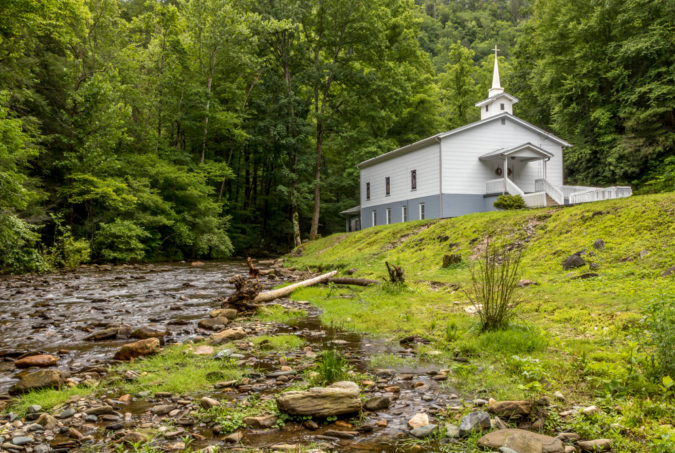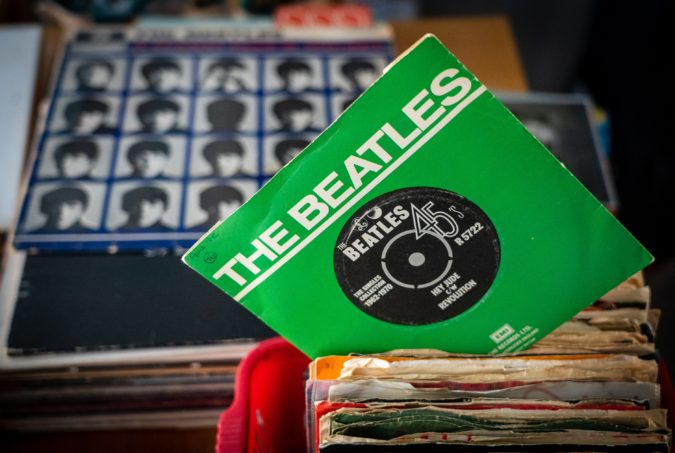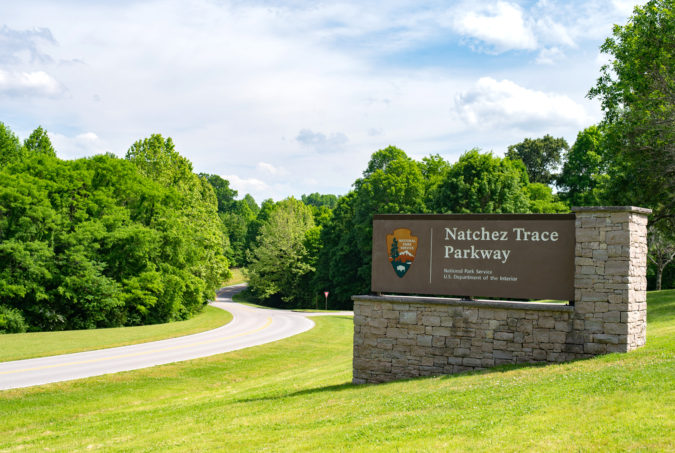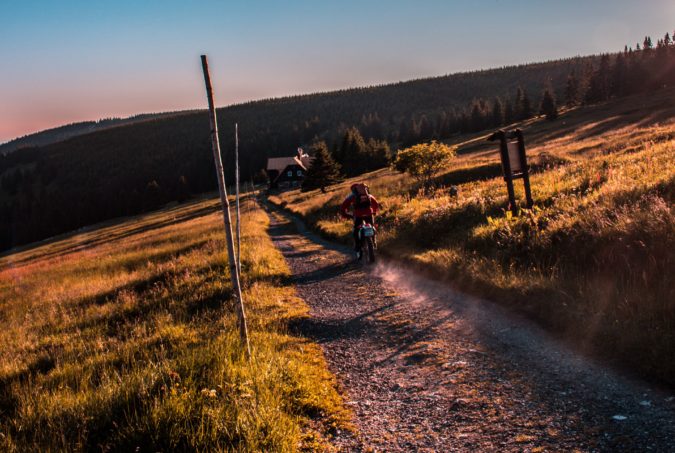I have been reading a collection of works by Frederick Buechner called Listening to Your Life: Daily Meditations (Harper San Francisco), really good stuff. Buechner, an American novelist and theologian, has a deeply empathetic view of life and its citizens. This particular piece really resonated and seemed it needed to be read by a few more of us. So I'm passing it along.
A Memorable Woman
AND PART OF ME will always be homesick, too, for a person I came to know, also in Manchester, during those same years. When the Baptist church, of which she was a member, was without a minister one winter, I took the services every Sunday for a few months, and that was how we met. She was a woman well on into her seventies, very thin, very stooped. She had been married a number of times, and for years, as a widow, had been living alone, on welfare, in the one small apartment left inhabitable in a house that had been gutted by fire a few years earlier. Shaking hands at the church door after the service one Sunday morning, I had said to her—neither expecting nor much caring about an answer—“How are you?” and she looked up at me out of her wry, beleaguered old face and said, “As well as can be expected.” Just that and no more, then made her way down the steps and out into the cold.
I am as deaf as the next one and usually deafer when it comes to calls for help, but I was all she had by way of a minister just then, after all, and I was not so literary and detached and specialized as not to know that every once in a while, if only to keep their hands in, Christians are supposed to be Christs to each other for Christ’s sweet sake, so I steeled myself and went to call on her one winter afternoon. I expected the worst, of course, because that is my nature. I expected a long, dreary monologue. I expected plenty of complaints with some tears to go with them. I expected to feel awkward and inadequate. I expected to be bored and hoped to get away as soon as I decently could. Read more [...]
For a brief shining year a while back I ran a music venue in Atlanta, The Royal Peacock. The building had been built in the 1920s, opening as Top Hat Club in 1938. Rechristened The Royal Peacock in the 1940s, it became a legendary club for music. Cab Calloway and Louis Armstrong played there, as did Ray Charles, Little Richard, and Marvin Gaye. Into the 1960s, it was the place to see and be seen by Auburn Avenue Atlanta royalty, everyone from Muhammad Ali to Martin Luther King, Jr., whose church was just up the street.
The club had fallen on hard times when we moved in, but all the original bones were there. The red upholstered booths, the Moorish design touches, the long hand-carved corner bar. The history was palpable.
We cleaned it up, added some high quality sound and lighting, stocked the bar, and started booking bands.
Everyone we could afford played there. And it was a mix, kind of like America. Classic R&B artists from the ’50s like Bobby “Blue” Bland, Jerry Butler, and Little Milton played alongside War, Indigo Girls, and Black Crowes. All the Athens bands of the day, Guadalcanal Diary, Love Tractor, B-52s.
One night as blues guitar legend Buddy Guy performed his signature guitar wailing walk out through the audience, he made a quick stop at the bar, where I happened to be stationed. The band paused, holding one long note, and he leaned my way.
“Bartender, give me a cognac.”
I obliged, and he downed three fingers of France’s best in one swallow. Impressive. Like his guitar playing.
Billy Preston needed a ride and I picked him up at the Hilton in my Jeep. Top-down, graying afro flowing in the summer breeze, the Beatles keyboardist was the consummate gentleman, soft-spoken and gracious.
The Temptations David Ruffin wasn’t quite ready to leave one night and we kept the bar open until the wee morning hours while he regaled us with stories of Motown, and the nightmare recording of the sublime “My Girl.” Only forty-nine Read more [...]
He was a five-year-old first-year Cub Scout, and today was the day of the Pinewood Derby. Pretty exciting. He and his Dad had built his car from the seven-inch long pine block that came in the mail from the Scout shop. Just a plain piece of wood with a couple of grooves cut for the axles. They had sawed, shaved, and sanded it into a beauty, painted red and black with lightning decals on the sides. He named her Red Lightning, and she was the most beautiful thing he thought he had ever seen.
His Dad knew a few things about cars and a little bit about physics. They had added some graphite to the wheels for lubrication. Cut out all possible friction, his Dad had said. And then, maybe most importantly, taped quarters and nickels to the car to add weight. He never would have figured that heavy cars go faster than light cars. But they did and again, that was science.
The race was held that evening in Fellowship Hall, in the back of the church. There were hot dogs and pizza, his favorite foods, and plenty of cookies to get all the kids juiced up for the festivities. They weighed Red Lightning when he arrived and she weighed almost right at the maximum allowed weight. Not even room for one more taped penny. She was ready to race.
The kid lived in a small town, which meant their scout pack was small, only sixteen scouts total. All the scouts raced each other, no matter what their ages. One of the big kids had won the Derby three years in a row and now he was ten, his last year as a cub scout. He was defending his title and seemed pretty confident to the little kid. In the history of their small town Derby, no five-year-old had ever won.
The track was thirty-two feet long and sloped down from four feet high at the top to the floor. He wasn’t four feet tall so there was a step to stand on. Gently he eased Red Lightning onto the starting gate, alongside another scout’s blue car, and then they were off. Any doubts about Red Lightning’s speed were quickly put Read more [...]
It was a big day. The kid, ten years old, was going crappie fishing with his grandfather and uncle. His grandmother had woken him up early to biscuits and gravy for breakfast, his favorite. It was still dark outside. While the men sat with their coffee, his grandmother made peanut butter and jelly sandwiches and packed them into bags with Wise potato chips and fried apple pies. Any day with fried apple pies was a good day.
They hooked the Ford up to the boat trailer and drove to the lake, the boy in the middle, on the bench seat. Got to the boat ramp as the sun was turning the dark sky to light grey. When the boat started it smelled like Castrol and gasoline, just like the dirt bikes he lusted for. Soon enough...
The men dropped him off on a sandbar with his fishing tackle, some crickets for bait, and his lunch in a brown paper bag. Then they headed off around the bend, out of sight. He rigged up his rod and looked out across the green water. The lake was so wide here you could almost see the curve of the earth.
Almost immediately, and unexpectedly, he hooked a large crappie. It took him three or four minutes to get it to the sand, where he gently unhooked it and admired its beauty. All silvery and sleek, the morning sun reflected off its scales. He put it on the stringer and cast again. And immediately caught another, reeling it in slowly to avoid tearing their delicate mouths, playing it closer and closer to the graveled sand, tiring it out enough to land.
And this went on. He had never had fishing like this. It was the perfect storm of schools of Spring crappie swimming the channel, right off his sandbar. By lunch, he had twenty shimmering crappies on the stringer and was excited enough to about burst wide open. He sat down on a pine log and ate his lunch, savoring the day, and his silver treasure, finning in the current.
After a while, he heard a boat in the distance, and when it came around the point he could see his grandfather and uncle. Before Read more [...]
Boulder, Colorado 1980. I had moved there from a small town in Georgia to attend school at the University of Colorado. CU. Buffalo country. In the foothills of the Rocky Mountains, it was like no place I had ever seen before. A hippie college town on the edge of a massive mountain range. Snow-capped peaks stretched off into the distance.
Late that summer, my parents had given me their blessings, $500, and a one-way plane ticket to Denver. Everything I owned or needed was in the pack on my back. And it turned out I needed the camping gear and sleeping bag immediately. The dorms were full, so the first few nights I slept under the stars, tucked back into the shrubbery along the chapel wall. Nobody bothered me or even seemed to notice. Just another long haired kid with a backpack.
Through a friend of a friend, I got a job working the night shift at Hanson ski boot factory. I’d go in at 10 PM, running a big injection molding machine, pouring the plastic boot shells. Nobody there was over twenty-five years old and just about everyone was in Colorado for one reason. To ski. So that’s what we did. Get off work at 6 AM, pile into someone’s car, and head up into the mountains for a morning of fresh powder. The first ones there when the lifts opened, the only tracks before us were ski patrol, policing the morning runs. Skiing well took practice, but also a positive mindset, the confidence to stay out in front of your skis, pushing but in control. Proactive courage. I skipped a lot of classes but became proficient on moguls, adding to my belief that adventure trumped trigonometry.
I also found a place to live. Six of us in a three-bedroom house. Jerry and Cecil were a black belt in Taekwondo, and an ex-college football lineman, respectively, and doormen/bouncers in the local discotheque at the Sheraton Hotel. Not my music of choice, but disco ruled the airwaves, and Saturday Night Fever was everywhere. Housemates Sam and Jenny were from Chicago and competitive Read more [...]
He was in fifth grade, a young American kid in a small town on the east coast of Scotland. His father was a Presbyterian minister who had packed up the entire family and moved from the hills of north Georgia to the Scottish Lowlands to study theology at the University of Edinburgh, the educational high church of the Presbyterian faith.
It was quite a move and full of big changes for the kid. For one, he had gone straight from being a third-grader in Georgia to fifth grade in Scotland. Something about Scottish schoolchildren starting school younger and keeping him with his age group. But he was tall for his age and a voracious reader so that helped. He sort of fit in. He definitely tried to.
Every morning he would walk with his father down to the train station, where his dad would catch the Edinburgh train, into the city to theology class. And the kid would go to school and try to keep up with fifth-grade math.
Then he started listening to music. And not just any music, but specifically a band named The Beatles. The Fab Four. John, Paul, George, and Ringo. And though he was only in fifth grade, he knew what he had to do. Let his hair grow out of this American crew cut. And somehow obtain a pair of Beatle boots. Pointy toed, ankle-high slip-ons, black. Just like the Beatles wore in all the pictures.
First, he approached his mother. She was sympathetic in a distracted way, not really understanding the importance of The Beatles, much less their boots. And besides, there was no Beatle boot room in the clothes budget of a theology student with a wife and three children.
The boots seemed unobtainable.
And then one day on the playground a kid he barely knew spoke to him.
“I’ve got a pair of Beatle boots. Brand new but they’re too small. Come over to my house and I’ll give them to you.”
Free Beatle boots. He could barely believe it. His fortunes changed in an instant. And that afternoon he set out walking to the kid's house to get his boots.
But Read more [...]
On a road trip back from New Orleans a couple of years ago I decided to drive along the Natchez Trace Parkway for a ways. The Parkway follows the original Natchez Trace, or trail, used by settlers, travelers, preachers, traders, and outlaws beginning in the 1700s and continuing up through the Civil War and beyond. It runs roughly five hundred miles from Natchez, Mississippi to present-day Nashville, Tennessee.
In the day, travelers would float their wares down the mighty Mississippi River from Kentucky, Ohio, and the Eastern midwest, to New Orleans, then make the long trudge back by foot or horseback along the Trace. It was a dangerous road, roamed by highwaymen, bandits, and bad men of all sorts. An area rich in the history of early America.
On one such journey up from New Orleans in 1809, Meriweather Lewis, of Lewis and Clark fame, stopped for the night at Grinder’s Stand, a rough-hewn lodging house near Hohenwald, Tennessee. Before the night was over, in an apparent fit of drunkenness and depression, he shot himself in the abdomen. He did not die quickly or quietly, and it took a self-administered second shot to the head in the wee dawn hours to finally end it. He was 35 years old, and one of the brave, brilliant, and promising figures of his generation.
Natchez is a beautiful old city about 170 miles above New Orleans, built right on the river. In its day, cotton was king here, and the city was the richest per capita in the United States. Old ornate antebellum mansions still stand, built mostly with slave labor. The slaves were brought here against their will to farm the massive cotton plantations that fueled the economy. It’s a grim legacy to this place and period of America’s past.
I never met a historical marker I didn't like, and there are plenty along the Trace.
At Emerald Mound, an eight-acre mound was built by the Mississippians, early Native Americans who first settled here in 500 AD. It is the second-largest in the country and housed Read more [...]
I grew up in the suburbs of a Major Metropolitan Area, as they say, all green leafy lanes and concrete. Plenty of shopping for things I can still never imagine wanting, and way too many cars to carry it all in. But I digress. Actually then there wasn’t nearly as much concrete or cars. Or shopping. And we spent a lot of time riding motorcycles, dirt bikes mainly. On the street.
But not street legal.
Nowadays such behavior is a sure ticket to a ticket, or worse. But then it was just what we did. We rode to each other’s houses, we rode to the store, we rode to the swimming hole. You get the picture. And I guess the police just had better things to do than pay any attention to a kid on a motorcycle, just riding around his neighborhood.
But of course, it’s not like that anymore. And I understand why. Roads are more crowded, cell phones proliferate, and, well, people are just more distracted. Hurtling down the road in 5000 pound rolling SUV projectiles.
Texting. Oblivious.
Then, adults would wave at us from their cars, smile, maybe stop and roll down the window.
“Saw your mama and she said time to get home for dinner.” And then to themselves:
“Such a nice boy…”
You’re laughing I see. Maybe you know me. But I swear these things actually happened. On a daily basis.
And at the dinner table.
From my Mom. “Mr. Davis said he saw you across town on your bike after school yesterday. He said you were riding pretty fast.”
Me. “Yes ma’am.”
My Mom. “You should slow down a little.”
Me. “Yes ma’am.”
True stories, all.
I'm sure my parents worried about me. Don't all parents? But they never tried to stop me. Even then they were learning themselves about letting go. And teaching me to let go, and grow, and make good decisions.
Sometimes I even did.
Did anyone ever get hurt? Because, you know, motorcycling is dangerous. Yes, sometimes we got hurt. But we also got hurt falling out of trees, and getting Read more [...]
Riflemen Andrew and Grigg (center)—British troops from London—during the Christmas Truce with Saxons of the 104th and 106th Regiments of the Imperial German Army
Belgium. December 25, 1914. Don’t stop me if you’ve heard this one. It’s worth re-telling.
On Christmas Eve, 1914 an officer with The Royal Irish Rifles reported to Headquarters, “The Germans have illuminated their trenches, are singing Christmas carols, and wishing us a Happy Christmas.” The lights along the German trenches were coming from small Christmas trees the soldiers had gathered, the first Christmas trees most Tommys had ever seen. The tradition of trees came from Germany. The war was then only 5 months old and most had expected it to end before Christmas. Not so. So far…
All through the night, the trees twinkled their message of brotherhood.
Soon soldiers up and down the line were joining in the singing, with some brave souls venturing out to share cigarettes, schnapps, and chocolate.
The festivities were started by the German Saxon soldiers, known to be more easygoing than their Prussian fellows. “We are Saxons, you are Anglo Saxons,” they shouted to the English across the cratered battlefield.
German-speaking was rare among the Brits, but many Germans spoke English, having worked in England prior to the war. Mostly in hospitality.
“I remember you,” One English officer remarked to a Fritz. “You were headwaiter at The Great Central Hotel.”
That night the two sides agreed to continue the truce through the next day, Christmas Day. To bury their fallen comrades. The Germans constructed homemade crosses for the English graves, a much-appreciated gesture. They shared graveside services, prayed together.
Some Scots produced a soccer ball and a game commenced over the frozen ground. A kickabout. The men were young and the game spirited. Much merriment was made of the Scot’s kilt undergarments. Which is to say nothing at all. Most accounts agree the Read more [...]
Bought a truck from a gentleman today, white GMC Sierra 1500. Work truck. His wife of 34 years is in the last stages of lung cancer and has already lived well beyond her doctor’s predictions. He was in ill health himself, busted up from 50 years in construction, falling off ladders, lifting more than his back was ever designed for. I went over early to help unload a lifetime of tools from the truck and toolbox. Drills, ladders, levels, sanders: it all had to come out. We unloaded it onto his apartment deck where she sat in the morning sun, reading a book.
They offered me coffee and we sat together on the deck. I asked her what she was reading.
She laughed and said, “Anything anyone brings me, but I like thrillers and mysteries, the bloodier the better. Nothing too sweet or sugar-coated.”
“Reading’s really all I can do anymore,” she said. “Can’t walk, can’t work, can barely get to the bathroom.”
We talked about her grandson, off at college freshman year. He liked to fish and they’d given him their bass boat. The gentleman was attentive the whole time, back and forth to the kitchen with his cane, filling coffee cups and the silent spaces with thoughts of his own. A lovely couple nearing the end of this road.
We did the paperwork and I handed over the money in an envelope. Nobody bothered to count it.
“What’re you going to do with that money?” I asked. “Head down to Mexico?”
“I wish,” she said. “Would love more than anything to be sitting on a beach.” “That was always one of our favorite things, being at the beach. Maybe getting in some surf fishing. Just stick the rod in the sand and sit back, watching it, watching the water...”
She pointed at her mouth, then at him. “Actually, he’s gotta get his teeth fixed,” she said. “Lost his insurance and hasn't been to the dentist in twenty years. That’s where the money’s going.”
A pause.
“Think if I knew then what I know now I would have spent Read more [...]









